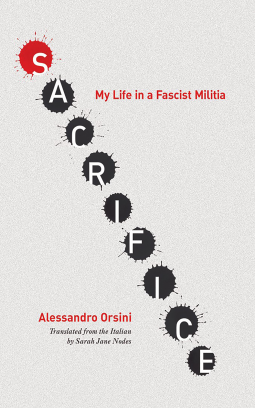
Sacrifice
My Life in a Fascist Militia
by Alessandro Orsini
This title was previously available on NetGalley and is now archived.
Send NetGalley books directly to your Kindle or Kindle app
1
To read on a Kindle or Kindle app, please add kindle@netgalley.com as an approved email address to receive files in your Amazon account. Click here for step-by-step instructions.
2
Also find your Kindle email address within your Amazon account, and enter it here.
Pub Date Sep 15 2017 | Archive Date Sep 15 2017
Description
Alessandro Orsini is one of Italy's premier analysts of political extremism. His investigation of the beliefs and mind-sets of Europe's political fringe has largely focused on anarchist and far-left groups, but in Sacrifice he turns his inquiry to the rapidly expanding neofascist movement. He joined local groups of a neofascist organization he names Sacrifice in two neighboring cities with very different political cultures. In this gripping, "insider" book, which features dialogues with various militia members, Orsini shows how fascists live day to day, how they understand their world, and how they build a parallel universe in which the correctness and probity of their attitudes are clear.
Orsini describes the long, troubled process by which these two groups slowly accepted him as an investigatoractivist and later expelled him for his ideologically uncommitted stance and refusal to subject his observations to censorship. His activities as a fascist were often mundane: leafleting, distributing food parcels to the indigent, and attending public rallies. In Sacrifice, Orsini describes from within the masculine ethos of the militias, the groups' relations with local police and politicians, and the central role of violence and anticommunist actions in building a sense of fascist community.
Advance Praise
"A stunning
rendering of life inside a fascist militia, exposing the raw
exhilaration of violence that lies at this heart of this frightening
world."—Kathleen Blee, author of Inside Organized Racism
"The dynamics of a single cell of fanaticism are uniquely revealed in a
way that makes the vast ideological monsters generating political
violence in the modern world all the more intelligible, all the more
human, and all the more disturbing."—Roger Griffin, author of Terrorist's Creed
Available Editions
| EDITION | Other Format |
| ISBN | 9781501709838 |
| PRICE | $26.95 (USD) |
Links
Featured Reviews
 Philip C, Educator
Philip C, Educator
This is an excellent account of the dynamics of a fascist organization in Italy. The author does a masterful job of telling a compelling, interesting story while also explaining how he approached the task as a sociologist. He weaves his discussion of methodology into the account instead of creating a separate chapter to deal exclusively with it. The result of this choice is a book that is both scholarly and accessible to lay readers interested in contemporary fascist movements. Orsini strikes a good balance between creating a more complex portrait of fascists and underscoring the violence and danger inherent in fascist beliefs and goals.






